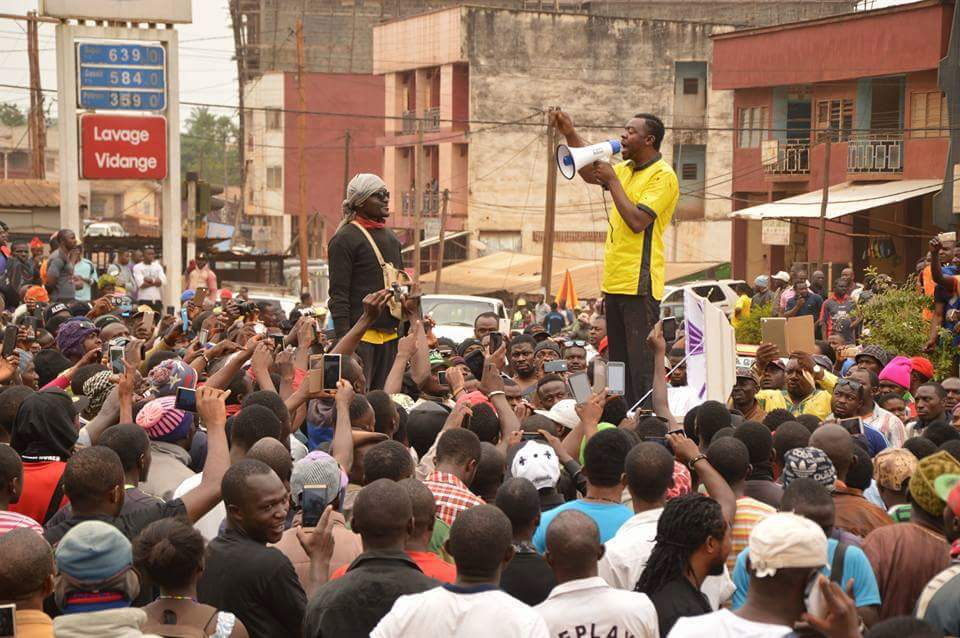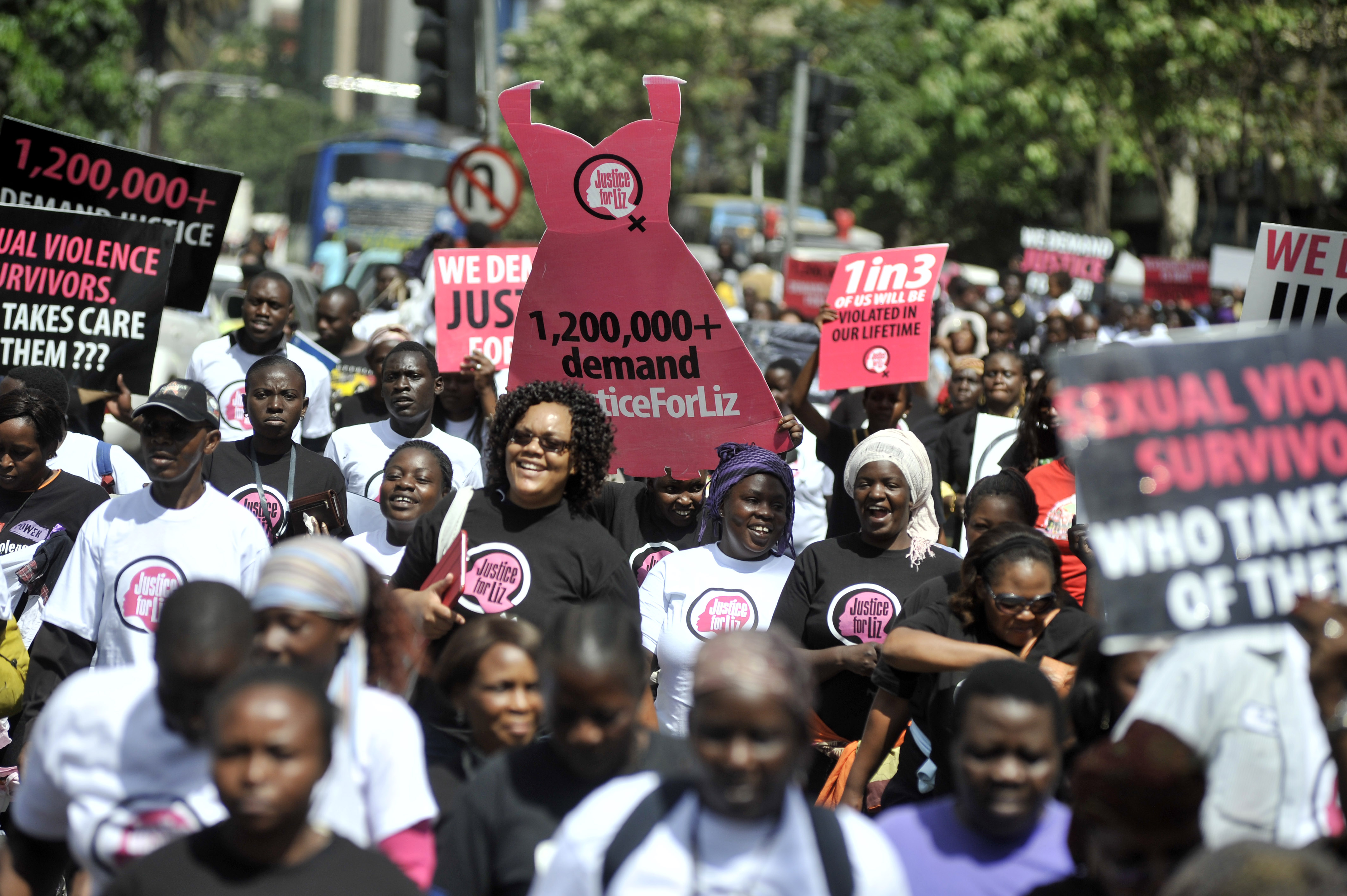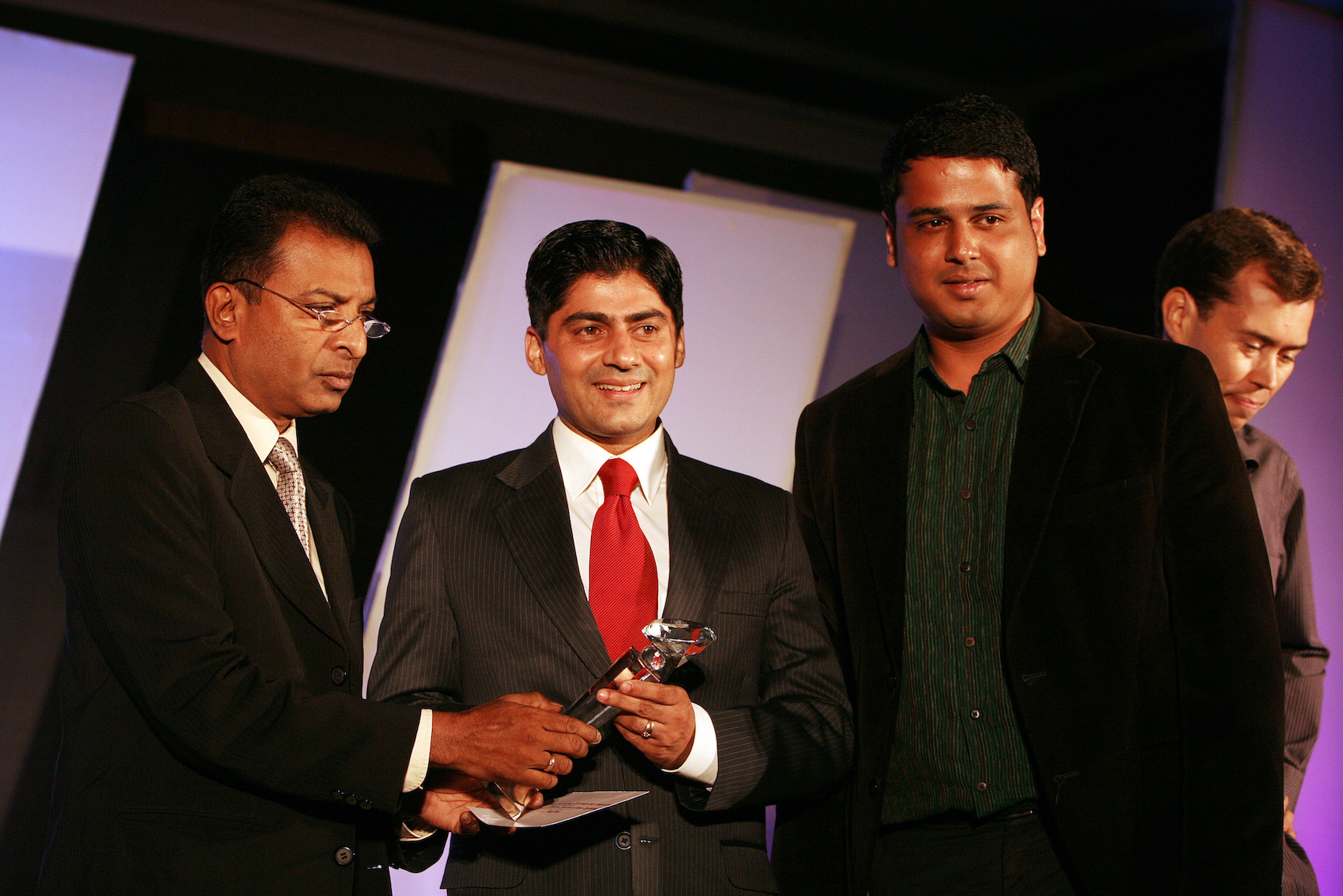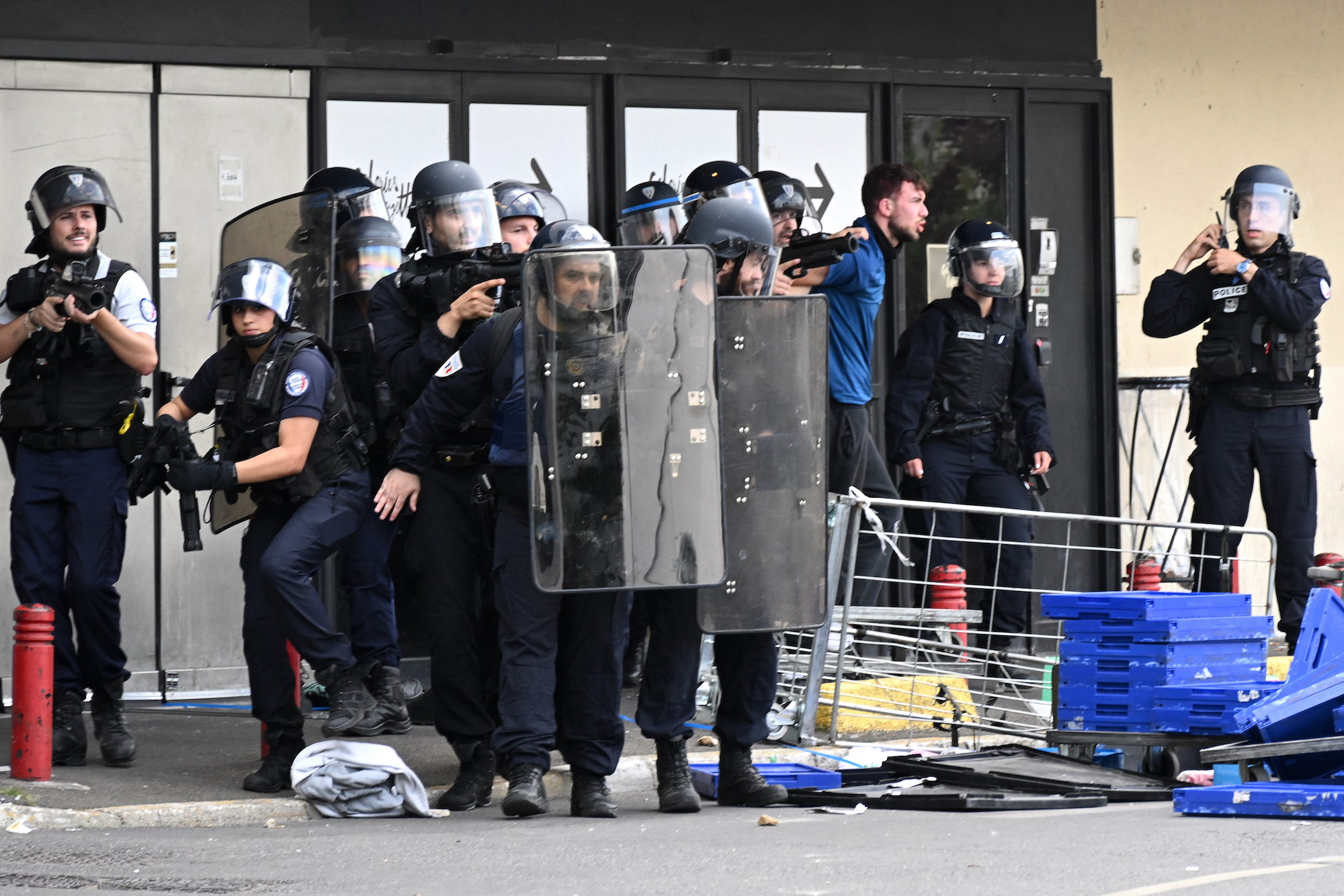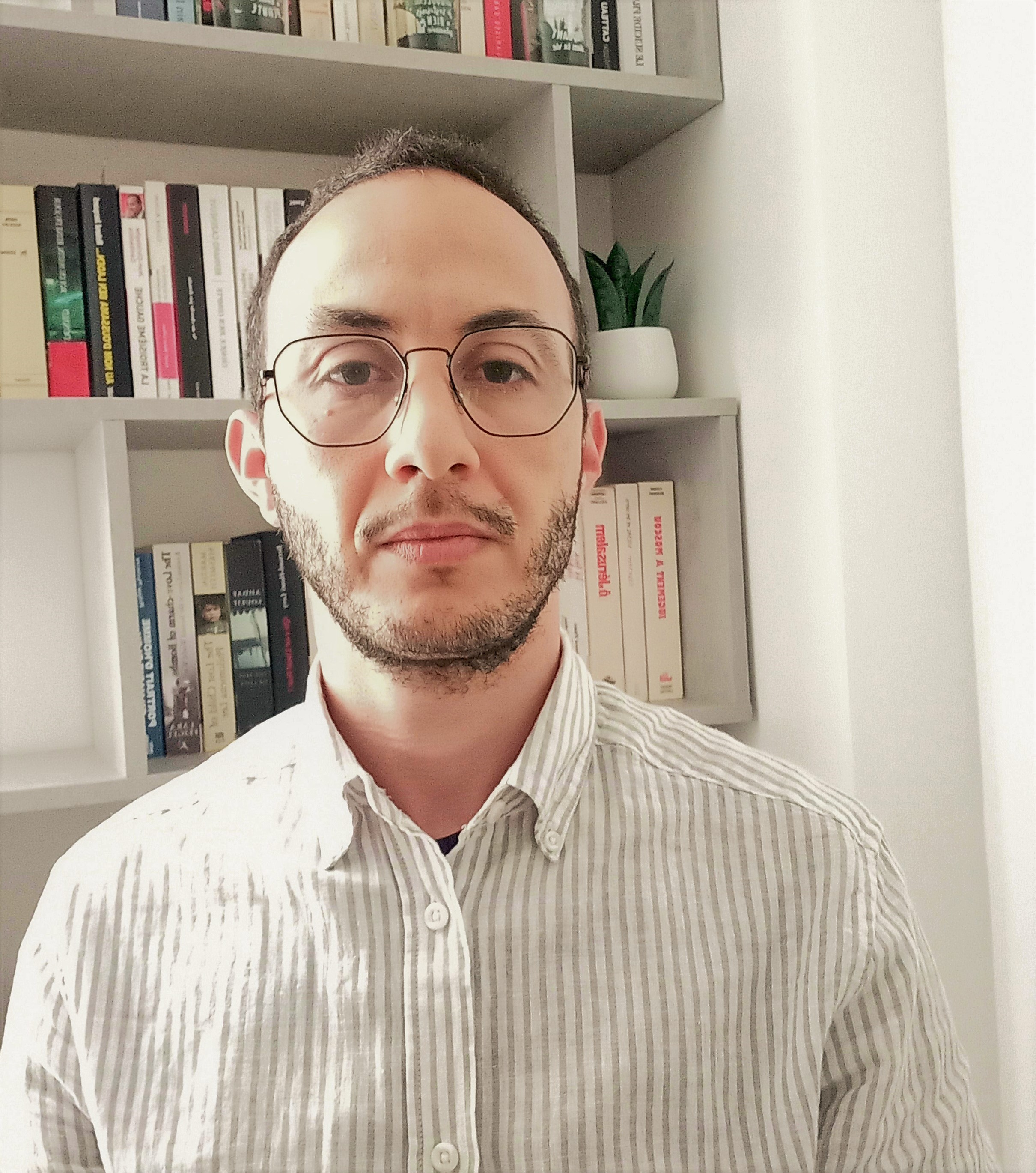Written by Belle de Jong, Originally edited by Tina Lee, and published on UnBais the News! on December 7, 2023, and is republished here with their permission.
More than 1500 journalists from dozens of US news organisations have signed an open letter protesting the Western media’s coverage of Israel’s atrocities against Palestinians since the October 7th attack. Condemning Israel’s targeted killing of reporters in Gaza and criticising Western media bias, they write that newsrooms are “accountable for dehumanising rhetoric that has served to justify the ethnic cleansing of Palestinians,” “undermine Palestinian, Arab and Muslim perspectives” and “have invoked inflammatory language that reinforces Islamophobic and racist tropes.”
Eight BBC journalists have also written an open letter to Al Jazeera, accusing their own broadcaster of failing to accurately report on Israel-Palestine, “investing greater effort in humanising Israeli victims compared with Palestinians, and omitting key historical context in coverage.” Another open letter was written by Australian journalists, calling on Australian newsrooms to undertake eight steps to improve coverage, including “adhering to truth over ‘both-sidesism’” and “applying as much professional scepticism when prioritising or relying on uncorroborated Israeli government and military sources to shape coverage as is applied to Hamas.”
This isn’t the first time journalists are speaking up against Western media’s bias in reporting on Israel-Palestine, nor did this bias begin on October 7th, 2023. In 2021, more than 500 journalists signed an open letter that outlined concerns about US media ignoring Israel’s oppression of Palestinians. Numerous books and theses have been written on this topic, and academic studies show that Western media like the New York Times is more favourable toward Israelis than Palestinians in its coverage.
Journalists’ outspokenness underscores a deep-seated concern about media ethics and accountability.
Differing perspectives on how to cover the conflict lead to bitter divisions in newsrooms, fuelling an ongoing debate on media objectivity and fairness in reporting on the deeply entrenched Israel-Palestine conflict.
Why is it Important?
The core task of a journalist is to gather, verify, and present information to the public in a fair, accurate, and unbiased manner. As Israel-Palestine has been making headlines since the October 7th attack and Israel’s retaliation, journalists have a responsibility to navigate through the developments while sticking to these core journalistic principles. Media should not only inform, but foster understanding without exacerbating tensions or perpetuating biased narratives. Instead, Western media’s coverage of Israel-Palestine has prioritised certain perspectives while diminishing others, neglecting crucial context and perpetuating (unconscious) stereotypes.
Hamas’ attack and the suffering it wrought was newsworthy – it was shocking, direct physical violence. But while the eyes of the world were now focussed on the region, Israel’s massive retaliation did not receive nearly the same amount or type of coverage. Instead, it was frequently uncritically framed as self-defense. This discrepancy can be attributed to news values, where proximity, prominence, human interest, and conflict play a role. But while newsworthiness is important, it should never result in biased reporting.
Associate Professor Mark Owen Jones, a specialist on disinformation and propaganda, notes: in the first 14 days of the conflict, the Daily Mail did not mention the cumulative total of Gaza’s killed on the frontpage, despite mentioning the Israeli death toll several times. “Palestinians are removed from the picture, as if Israeli suffering is the only kind of suffering worth mentioning on the front page,” he said.
Missing Context
Since 7 October, one critical thing has been missing in media coverage: context. The Hamas attack was reported on without mention of the historical context in even the most detailed articles, Israel’s occupation of Palestine or any form of systemic violence since the Nakba in 1948. Much of the reporting was done in the form of live blogs, allowing only for short updates on the most recent developments. Academic analysis also shows that the coverage of past events focuses on violence and counterviolence, without addressing the root issues and wider context of the conflict.
Historical context often lacks in media coverage, but is rarely as important for understanding current events as it is in Israel-Palestine.
Unlike the way the media portrayed it, the October 7th attack did not happen in a vacuum, but occurred in the context of decades-long oppression, discrimination and expulsion. The lack of basic needs and dire living conditions in Gaza, deemed as ‘unliveable’ by the UN, form a breeding ground for violent resistance.
Media often shy away from providing critical context, citing the perceived complexity and contested nature of the conflict. Ironically, this approach can in itself lead to a biased portrayal of the events. For instance, while an overwhelming majority of human rights organisations, academics and experts agree that Israel practices apartheid, Israel rejects this terminology as antisemitic. Journalists must provide some of the context to enhance understanding and nuance in reporting.
Egyptian surgeon-turned-comedian Basser Youssef summed it up brilliantly in his second interview with Piers Morgan, observing that whenever something happens in Israel-Palestine, people consider it a “complicated situation” and do not know what is happening.
When the media has been covering a 75-year-long conflict with all its resources and expertise, Youssef says, and people have the exact same reaction every time, that is a failure of the media apparatus. “Because why does it seem, every time this happens, like it is happening from point zero?”
Spreading Misinformation
The US journalists’ letter also accuses media outlets of printing misinformation spread by Israeli officials and failing to scrutinize the indiscriminate killing of civilians in Gaza. It is not merely Israeli officials spreading misinformation, but media mishaps that feed into certain narratives.
For instance, the BBC mistranslated the testimony of a Palestinian hostage who was set free, subtitling the fragment to say “Only Hamas cared … And we love them very much”. In reality, she said, in Arabic: “As winter came, they cut off the electricity. We almost died from the cold weather. They sprayed us with pepper spray and left us to die inside the prison.” The BBC has since corrected the translation and added a clarification stating the inaccurate subtitles were due to “an error in the editing process”.

Another unverified claim widely spread by Western media outlets was the allegation that Hamas had beheaded 40 Israeli babies, which was based on unverified reports and retracted by the CNN journalist who originally repeated the statement from Netanyahu’s office. Spreading such claims without verification goes against global ethics for journalists, which state that journalists shall only report in accordance with facts of which they know the origin. Despite a lack of evidence, the widely circulated story caused shock and horror around the world, a sentiment that fuelled support for Israel’s retaliation.
The debunking of the story added insult to injury, as it fuelled conspiracy theorists to cast doubt on the attack as a whole. An example is an online influencer spreading the news that Haaretz debunked most reports of what happened on October 7th, while this wasn’t the case. When journalists abandon skeptical reporting and fact-checking, it opens up the door for conspiracy theorists (and audiences altogether) to doubt journalism’s ability to deliver the real story.
Use of Language
Media bias is also clearly reflected in the language used when reporting on Israel-Palestine. The Guardian published an editorial calling Hamas’ attack a “murderous rampage”, while The Economist called it a “bloodthirsty assault on Israel.” Western media outlets do not describe Israeli attacks of similar magnitude in the same way – even as more than 15,000 Palestinians have been killed by Israel. While Israeli news outlet Haaretz has published an op-ed describing Netanyahu’s government as “bloodthirsty”, Western outlets seem to shy away from such descriptors- for Israel.
The biased language used to describe Palestinians can be painfully obvious: The Guardian referred to Israeli hostages as “women and children” but the Palestinian prisoners they were being exchanged with as “women and people aged 18 and younger.” The wording was changed after a backlash on social media. It is this type of language that dehumanizes Palestinian victims while humanizing Israeli victims.

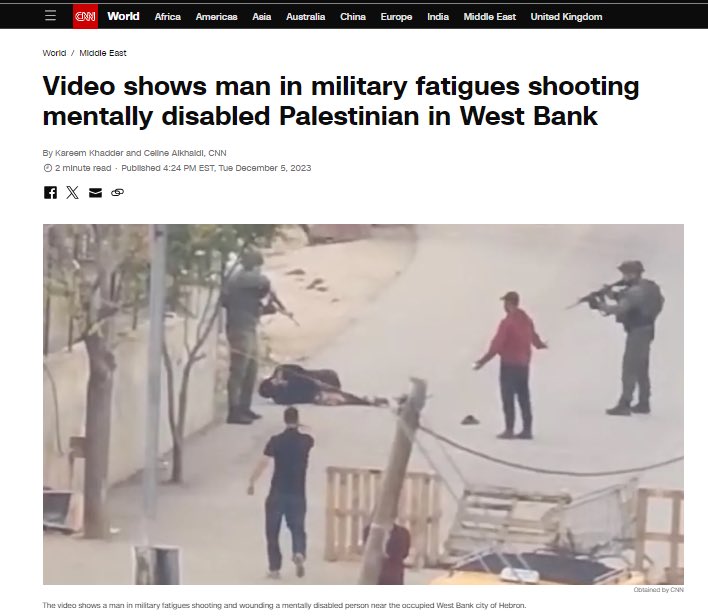

With 63 journalists killed (56 Palestinian, 4 Israeli, and 3 Lebanese) as of publication, this has become the deadliest period for journalists since the Committee to Protect Journalists began gathering data in 1992.
While Western media interview Israeli military officials and IDF spokesmen are given primetime coverage, they rarely broadcast Palestinian governing authorities, and when they do, they are often met with accusations rather than interview questions. When they refuse to engage in such interviews, the media consciously single out that particular moment in short clips rather than engaging in self-reflection on whether the same interviewing standards are used for Israeli and Palestinian sources.

Similar framing is used for victims of violence, depending on whether they are Palestinian or Israeli. Israeli victims have been given names and faces, with Western media publishing entire reportages detailing their personal stories and pain, while Palestinian deaths are mostly reported in charts and numbers rather than stories of human beings with multifaceted lives. These different approaches elicit empathy for Israelis while they dehumanise Palestinians and reduce their lives to a statistic.
Western journalism has failed Palestinians to the extent that Gazan youth felt the need to start the We Are Not Numbers project to make their voices heard, stating that “numbers are impersonal and often numbing” and fail to convey the “daily personal struggles and triumphs, the tears and the laughter, and the aspirations that are so universal that if it weren’t for the context, they would immediately resonate with virtually everyone.”
Treatment of Experts and Interviewees
Interviewees from Gaza and Palestine, the large majority of whom have lost numerous loved ones and relatives in the past weeks, are often asked to “condemn Hamas” – even before their loss and grief is acknowledged by interviewers. The first question of an interview sets the tone. When Palestinians are asked whether they condemn Hamas, it takes away from the real topic: the experience of Palestinians. It casts Palestinian suffering in light of relation to Hamas, and interviewees end up spending a large chunk of the interview talking about Hamas’ crimes, rather than their own situation. But this question does not only put the interview in a light beneficial to Israeli narratives from the very start; it also implies that Palestinians are complicit in their own suffering, as Israel’s violence is framed as retaliation against a terror attack rather than a potential genocide, as UN experts have warned.
Yet when Israelis are interviewed, even as Israel has been bombarding Gaza for weeks, they are not pressured to condemn the crimes carried out by their government and the actions of far-right Prime Minister Netanyahu, who has been accused of having numerous war crimes to his name. Conflating people with their governments is sloppy in any case, and cuts against Israelis too. While hundreds of Israelis gathered to protest against Netanyahu on 3 December, Israelis critical of their own government are rarely given airtime.
Palestinians are treated as if they are responsible for the violence in Israel-Palestine, while Israelis are asked in-depth questions about their experiences and expertise instead of being asked whether they condemn their government.
Palestinian journalist Ahmed Alnaouq, the founder of We Are Not Numbers, says this is nothing new. Based in London, he has lost 21 of his family members in Palestine, 14 of which were children. When interviewed on Good Morning Britain, he was asked: “How close were you to your brothers?” He later said it is common for him to be countered with disbelief. “It is always that the media invite Palestinians to speak, in order to embarrass them. To put them in a position where they have to defend themselves, to prove their worthiness to the Western audience,” he said in an interview with Al-Jazeera.
Satirical Alternatives
It is this hypocrisy and misconduct in Western media that has turned audiences towards satirical alternatives, which appear to be doing a better job at portraying the bizarre times we are living through than professional news media. American outlets like The Onion and Reductress feature headlines like, “Israel Government Officials Claim That Palestine Actually Occupied Itself” and Piers Morgan’s first interview with Bassem Youssef, in which Bassem challenges Western assumptions about Palestinians using his signature satirical comedy, was one of the first interviews on this topic to go viral globally, and one of Morgan’s most successful interviews ever.
Call a Spade a Spade
In their open letter demanding more accurate and critical coverage of Israel-Palestine, the journalists call for their colleagues to “tell the full truth without fear or favour” and encourage newsrooms to use terms that are well-defined by international human rights organisations, including “apartheid” and “ethnic cleansing”. And while UN experts have warned they are “convinced that the Palestinian people are at grave risk of genocide,” Western outlets remain hesitant to quote genocide experts and accurately describe the existential threat unfolding in Gaza. As the numbers of the ongoing violence surpass the numbers of the Nakba, Western media have to start calling a spade a spade.
While politicians and public actors have certain agendas and manipulate language in their favour, journalists (supposedly) do not. In certain situations, legal terms accurately describe the nature of events, helping the public comprehend the gravity of the circumstances being reported. Journalists have an ethical responsibility to accurately represent the truth. If the situation warrants the use of terms like “ethnic cleansing”, not using them might result in downplaying the severity of the events, potentially contributing to misinformation. Nonetheless, journalists must exercise caution, ensuring their language is based on verified facts, credible sources, and a thorough understanding of the legal and historical context.
As Nobel Peace Prize Winner and Yezidi human rights activist Nadia Murad wrote in the preface to the Global Investigative Journalism Network’s Guide to Investigating War Crimes, journalists help the world to know about atrocities and “reporting can also be a vital part of the documentation process”.
When journalists turn away from describing events as they are or ignore some voices in favour of others, it can make the process of seeking justice all the more difficult.
“If a journalist had told our story earlier would anything have changed?” Murad asks. “I don’t know the answer to that. But I would urge investigative journalists to look for us, and look for us earlier, the hidden and the vulnerable, before the atrocities start. You are, quite often, our only hope.”





























![A demonstration against Israel's war on Gaza on Paulista Avenue in São Paulo on November 4, 2023, draws attention to the deaths of children while the media focuses on the war against terrorists. [Photo: Lina Bakr]](/sites/default/files/ajr/2024/Picture1.png)

